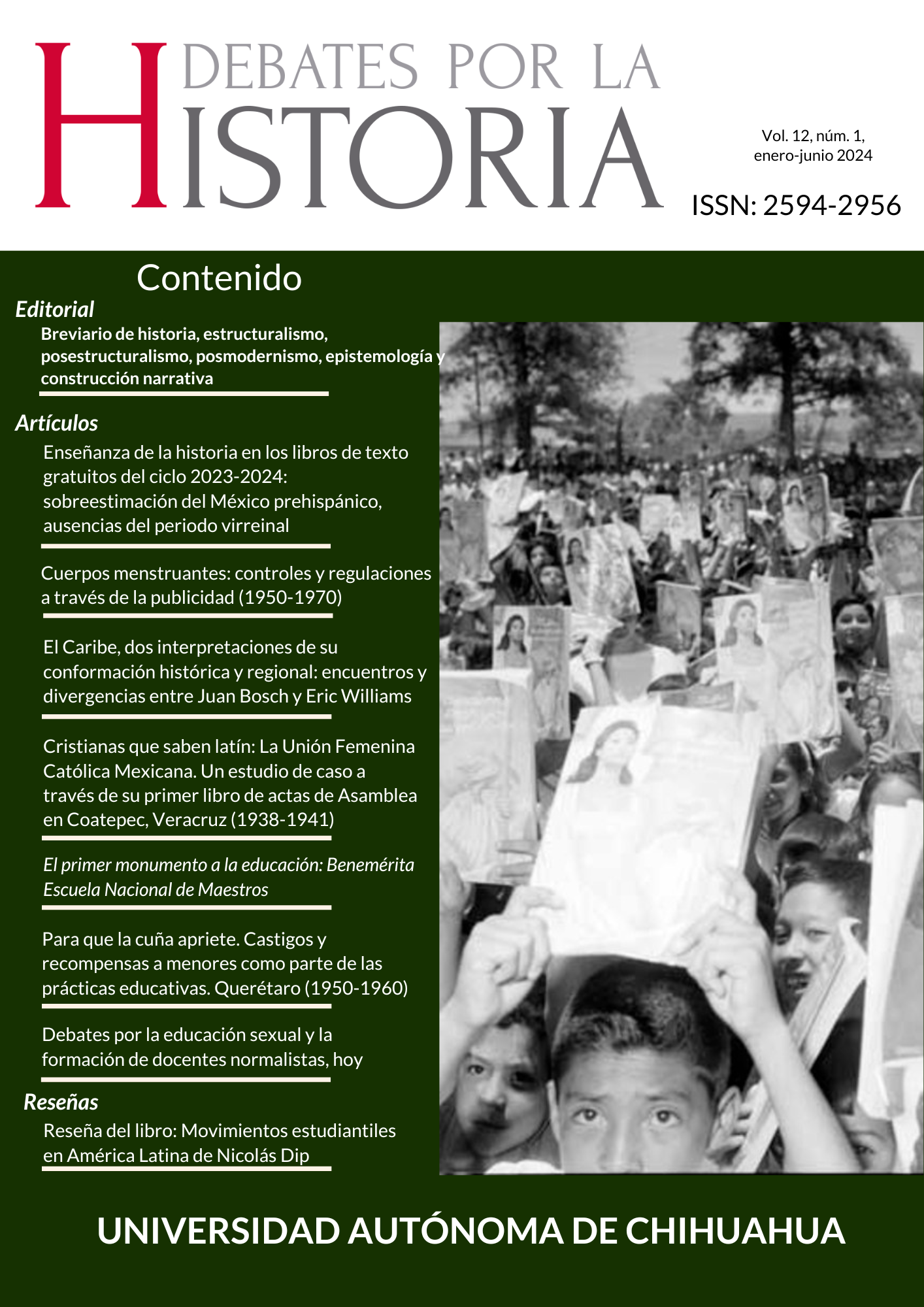Abstract
The historiography of the Caribbean is diverse in terms of the quantity of studies that comprise it. There have been different efforts to compile in one work centuries of historical events directly linked to the centers of world power. The present work has the objective to analyze historiographically two of its most relevant works: From Christopher Columbus to Fidel Castro. The Caribbean frontier of John Bosch and from Columbus to Castro: The history of the Caribbean 1492-1969 by Eric Williams. The two texts mentioned were subject to analysis, including other resources related with this topic, the authors and the historic and spatial context. The methodology used was the analysis and critical revision of historiographic sources. The study shows the importance of the Caribbean Region in the history of humanity. It allows for an understanding of the events that occurred in the Caribbean countries and for a delimitation of future political, economic and social strategies in light of a holistic frame of understanding of history. The authors analyze Caribbean history from a nationalist perspective. Both recreate diverse periods in the development of these people, supporting themselves in culminating milestones in the history formation of the region. Its current relevance relies on its methodological value, a deep documental study and the need to keep studying our past in order to construct a better future.
References
Bosch, J. (2009a). Cuba, la isla fascinante. Traficantes de sueños.
Bosch, J. (2009b). De Cristóbal Colón a Fidel Castro. El Caribe frontera imperial. Fundación Juan Bosch.
Braudel, F. (1991). El Mediterráneo. Ciencias Sociales.
Clastres, P. (1996). Sobre el etnocidio. En Gedisea (comp.), Investigaciones en Antropología Política. Gedisea.
Duharte, R. (2004). África en el Caribe. Una reflexión sobre la influencia africana en la historia y cultura de la región caribeña. En H. Pérez (comps.), Pensar el Caribe, cinco ensayos de interpretación de la región caribeña. Oriente.
Fernández, Y. (2024). La identidad caribeña en las tradiciones decoloniales del Caribe Antillano de la segunda mitad del Siglo XX [Tesis de maestría no publicada]. Universidad Autónoma San Luis Potosí.
Guanche, J. (1980). Hacia un enfoque sistémico de la cultura cubana. Revolución y Cultura, (1).
Guanche, J. (2008). Componentes étnicos de la nación cubana. Instituto Cubano de Investigación Cultural Juan Marinello.
Hay, F. (2014). Race, culture, and history: Charles Wagley and the anthropology of the African Diaspora in the Americas. Boletim do Museu Paraense Emílio Goeldi, 9(3), 695-705. https://www.redalyc.org/pdf/3940/394051398010.pdf
Larramendi, J. (2022). Cuba, indígena hoy. Sus rostros y ADN. Ediciones Polymita.
Le Riverend, J. (1965). Historia Económica de Cuba. Editora Universitaria La Habana.
Maríñez, P. A. (1996). Resistencia e Identidad Cultural en el Caribe. Ay Bōbō, 51-68.
Martínez, H. (2007). La Revolución Cubana del 30. Ensayos. Ciencias Sociales.
Martínez, M., y Laguardia, J. (Comps.) (2011). El Caribe en el siglo XXI: coyunturas, perspectivas y desafíos. Ciencias Sociales.
Marx, K. (1846). Carta a Pável Anenkov. www.marxists.org/español/m-e/cartas/m28-12-46.htm
Ortiz, F. (1963). Contrapunteo cubano del tabaco y el azúcar. Consejo Nacional de Cultura.
Torres Cuevas, E. (2015). Historia del pensamiento cubano (vol. 1 y 2). Ciencias Sociales.
Pérez, T. (Comp.) (2015). Correspondencia de Fernando Ortiz 1940-1949. Fundación Fernando Ortiz.
Sartre, J. P. (2004). El ser y la nada. Losada.
Valdés Bernal, S. (2003). Visión lingüística del Caribe insular precolombino. Catauro, 5, 159-177.
Venegas, H. (1994). Teoría y Método en Historia Regional Cubana. Capiro.
Walcott, D. (2003). Las Antillas: fragmentos de una memoria épica. En I. Beltrán (comp.), Discursos Premios Nobel (t. 1). Fundación Nobel.
Williams, E. (2009). De Colón a Castro: la historia del Caribe 1492-1967. Instituto Mora.
Williams, E. (2011). Capitalismo y esclavitud. Traficantes de Sueños.

This work is licensed under a Creative Commons Attribution-NonCommercial 4.0 International License.
Copyright (c) 2024 Geicy Fanjul Ramos, Yurier Fernández Cardoso, Sandy Rodríguez Pérez


